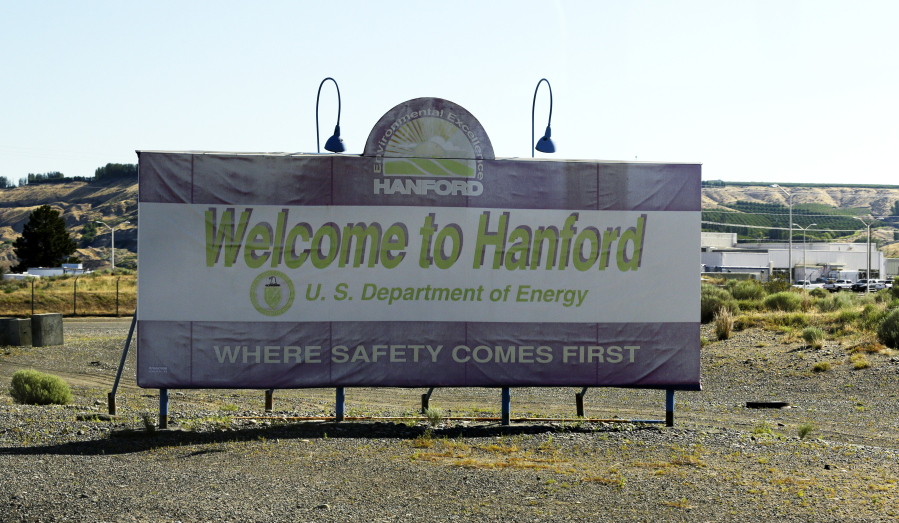SPOKANE — A rare work stoppage continued Tuesday by Hanford Nuclear Reservation workers who contend that radioactive wastes left from nuclear weapons production are making them sick.
Union president Dave Molnaa, who ordered the work stoppage, said it will continue until all employees are provided with bottled air when working around all of the underground nuclear waste storage tanks on the Hanford site.
Workers have contended for years that chemical vapors escaping from the tanks are making them sick.
The steel tanks, some dating back to World War II, contain wastes left over from the production of plutonium for nuclear weapons.
The Hanford Atomic Metal Trades Council, a coalition of 15 unions that represent workers on the site near Richland, Washington, issued the “stop work” order on Monday morning when some employees went to work at the tank farms without supplied air respirators.
Molnaa, president of the council, said he would not lift the stop-work order until air respirators supplied by the nuclear reservation were mandatory for all work in Hanford tank farms. “That’s what it’s all about,” Molnaa said Tuesday, adding it was the first time the council had launched a stop work effort.
About 700 people work each shift at the tank farms, where waste is stored until it can eventually be turned into a stable glasslike substance by a yet-to-be finished plant for permanent disposal. The work stoppage covers approximately 2,000 of the more than 8,000 workers on the Hanford site, Molnaa said.
The 177 underground tanks store 56 million gallons of the most toxic wastes left over from the production of plutonium, including for the bomb dropped on Nagasaki, Japan, to end World War II.
The government is required to clean up the wastes, a process that is expected to take decades and cost billions of dollars.
Under the union order, work can continue if workers are using air respirators, Molnaa said.
Washington River Protection Solutions, the private contractor that operates the tank farms for the U.S. Department of Energy, requires that air respirators be worn for much of the work near older single-walled tanks, most of which are passively vented into the atmosphere. But the company said last week there was no data to support using air respirators for work in the newer double-walled tanks, which are not vented in the same way.
However, workers have reported smelling suspicious odors or feeling ill when working around the newer double-walled tanks. Workers have reported headaches or bloody noses after exposure to the vapors, Molnaa said. “If they’re not going to protect the people I represent. I’ll do it for them,” Molnaa said.
Both the union council and the contractor have to reach agreement before a stop-work order can be lifted, a process that could take several days.
In recent months, more than 50 workers have had medical checks after smelling suspicious odors, experiencing respiratory symptoms or being nearby when vapors were suspected. They were working in double-shell and single-shell tank farms and some were outside the farms.
All were cleared to return to work, according to Washington River Protection Solutions. But workers are concerned that chemical exposure could lead to serious lung or nervous system illnesses.
The main task of Washington River Protection Solutions is to empty radioactive and hazardous chemical waste from 149 leak-prone single-walled tanks and one leaky double-walled tank. That work stirs up the chemical vapors, which are not radioactive and are invisible to the naked eye.
Washington River Protection Solutions continues to evaluate the feasibility of requiring air respirators for all work within the tank farm, President Mark Lindholm said.
“We are committed to maintaining a strong working partnership with HAMTC,” Lindholm said in a message to employees. “We believe our current activities and future actions are aligned with and will address concerns related to worker safety.”



